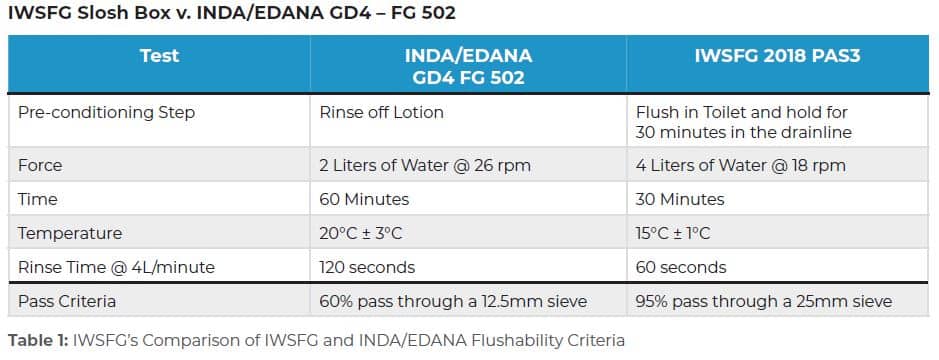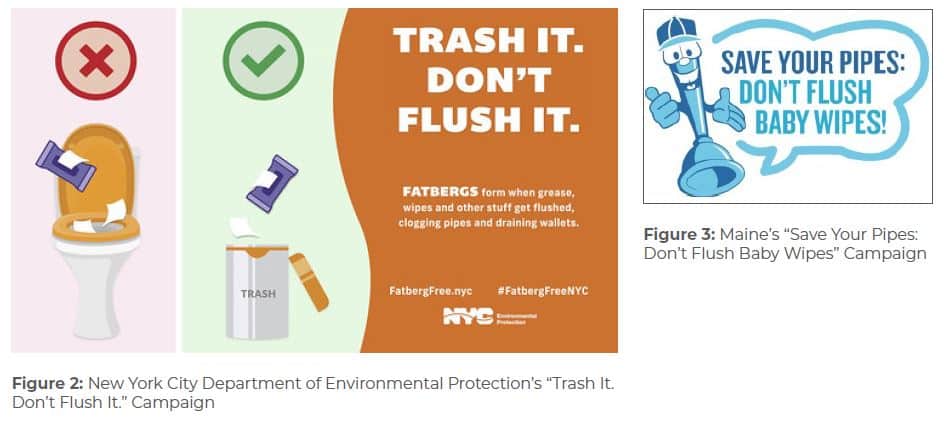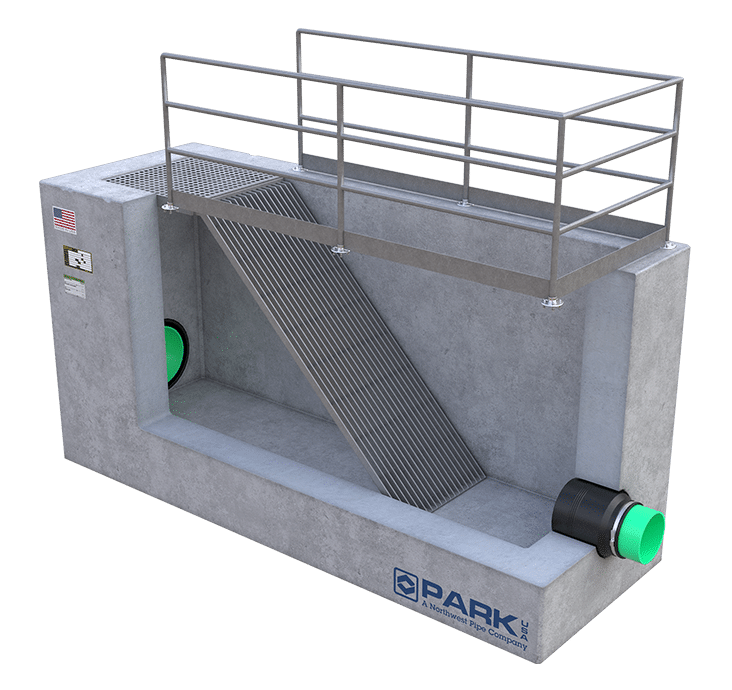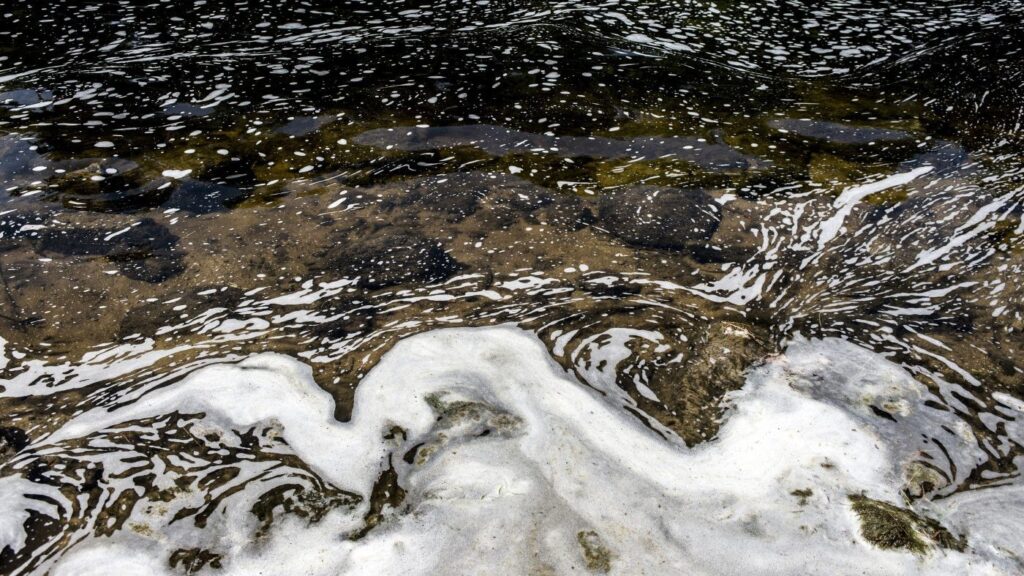Every day, countless amounts of fats, oils, and grease (“FOG”) are disposed down drains. Overtime when FOG is released into the sewer system, FOG solidifies and undergoes a chemical reaction with the wastewater, forming particles that deposit onto the surface of sewer pipe to a point where wastewater cannot pass through. Additionally, with the recent popularity of “flushable” hygienic wipes, clogs are forming even faster as hardened grease is attaching to non-decomposed wipes flushed down the toilet.
The appeal of “flushable” wipes is that they are easy to dispose of and often labeled as “flushable.” While these wipes may be labeled “flushable,” the Federal Trade Commission (“FTC”) has not legally defined the term, nor has the FTC set forth any regulations for a company to claim their wipe products to be “flushable.”
Currently, there are only voluntary guidelines and assessment tests that validate properties needed for a wipe to be marketed as “flushable.” In 2018, the International Nonwovens Disposables Association (“INDA”) and the European Disposables and Nonwovens Association (“EDANA”) released a new set of guidelines called “GD4” outlining a series of tests that wipes must pass to be considered “flushable.” According to GD4, for a product to be deemed “flushable” there must be evidence indicating that the wipe:
- Clears toilets and properly maintains drainage pipe systems when the suppliers recommended usage instruction are correctly followed;
- Passes through properly maintained wastewater conveyance systems and is compatible with wastewater treatment, reuse, and disposal systems without causing system blockage, clogging, or other operational problems; and
- Is unrecognizable in effluent leaving on-site and municipal wastewater treatment systems and in digested sludge from wastewater treatment plants that are applied to soil.
In addition, the International Water Services Flushability Group (“IWSFG”) has also released a Publicly Available Specification “PAS” to provide criteria for product manufacturers, governmental agencies, and other entities that want to determine if products that are flushed are safe for wastewater infrastructure. Table 1 highlights the differences between tests associated with ISWFG PAS and the INDA/EDANA GD4. However, while these guidelines are available,many consumers and wastewater industry professionals have claimed that “flushable” wipes are still not disintegrating fast enough and are clogging pipes across the United States.
Aside from the lack of regulations, another issue with “flushable” wipes is they are similar in function and appearance to wipe products that are specifically designed to be disposed of in the trash. For example, baby wipes or facial wipes, which are marketed as “non-flushable” are still being flushed by consumers due to their similar appearance. Because both “flushable” and “non-flushable” products are not breaking down fast enough, if at all, homeowner and municipal sewer pipes are getting clogged (see Figure 1). When this occurs, cities are spending thousands of dollars on equipment repair and replacement. In fact, according to the National Association of Clean Water Agencies, the problem related to “flushable” wipes and related clogging issues is estimated to cost U.S. utilities up to $1 billion annually.
Proper Disposal Techniques
There have been a number of campaigns and public service announcements warning consumers of products that should and should not be poured down drains or flushed in toilets (see Figure 2 and Figure 3). Many agencies recommend only toilet paper and human waste be flushed. Flushable wipes, feminine products, paper towels, and diapers can clog a toilet or sewer line and should be disposed of properly in the trash.
ParkUSA Wastewater Solutions
To help reduce build ups caused by wipe masses, ParkUSA offers several products that are great solutions to mitigate blockages caused by “flushable” wipes.
Grinders: ParkUSA Grinder Assembly is an Inline Grinder recommended for use on gravity flow sewer lines which may experience high solids that can clog sewer piping. ParkUSA Grinders reduce a variety of materials including sanitary wipes, rags, wood, paper, shoes, sludge and more. These units are proven to reduce pump clogging, protect process and dewatering equipment, reduce solids, and keep wastewater systems running properly. The ParkUSA Pump Trooper line offers a grinder pump, which is a high-powered pump fitted with sharp cutters to shred solids and move them under high pressure, usually in a relatively small diameter pipe. Grinder Pumps are designed to disintegrate or grind solids in wastewater, thus reducing discharge pipe size and creating a pressurized system.
Screens: The ParkUSA BarScreen is a stationary screen device used for wastewater or stormwater applications. Bar Screen assemblies are used in an open channel (free surface) flow applications to separate & detain coarse debris and contraband. These unusual solids have a potential for clogging the public sewer line, causing expensive cleaning and downtime of the sewer system.







